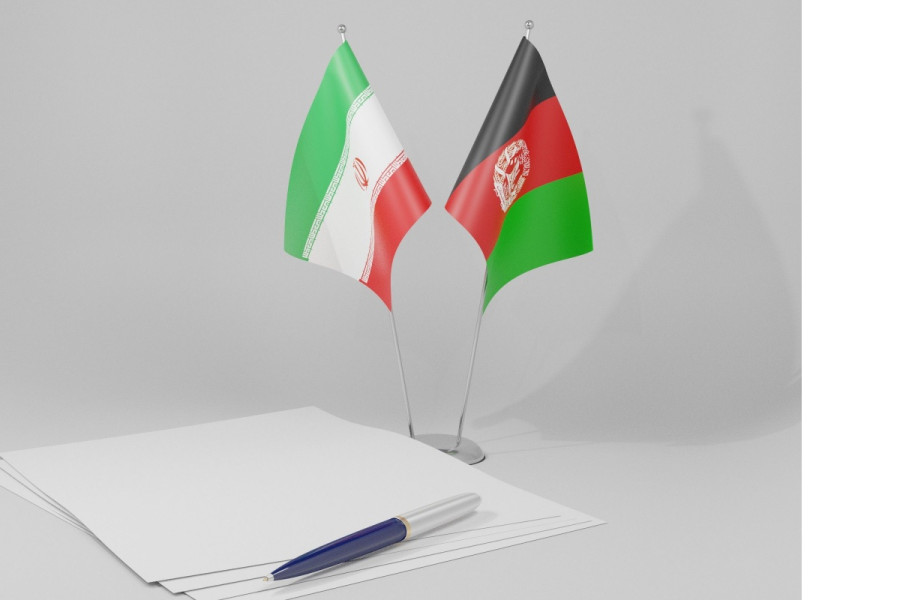Columns
The fate of Afghan refugees in Iran
It remains unclear whether Pezeshkian’s government would formulate a dedicated refugee policy.
Anant Mishra & Christian Kaunert
As Iran’s President-elect, Masoud Pezeshkian, continues to receive congratulatory calls from global leaders, he is due to hold discussions with foreign counterparts from July 8, with a swearing-in before the Parliament not scheduled before the first week of August. This does not seem to prevent senior Iranian diplomats from supporting Pezeshkian’s policies (from engaging the West to Afghan refugees, which was a focal point of discussion during the elections).
That said, it remains unclear as to how the conservative political regime will respond to his policies, with one scholar referring to over two interactions with the Ayatollah, speculating Pezeshkian to have received some directions/guidance on the same. On enquiring over Pezeshkian’s interaction with the Ayatollah, one IRGC commander acknowledged Pezeshkian received direction to continue the foreign policy initiatives of his predecessor, the late former president Ebrahim Raisi, without naming the Ayatollah.
It may be too early to predict the potential prospect of Pezeshkian’s Middle East policy or future efforts to renew Iran-West diplomacy with a neighbouring Taliban, but we witness some excitement within the Rahbari Shura, with members enthusiastically watching this political transition.
Afghan migration post-Taliban rule
As the third year of Taliban rule comes to a close, Afghans continue to apply—in large numbers—for migration to Iran, a pattern which appears to have grown since 2021. According to a source close to Khalil Haqqani (the acting Minister of Refugees), citizens (by hundreds) continue to stand in line outside the Ministry of Refugee and Repatriation in Kabul, seeking permission to leave the country.
With the Islamic Republic of Iran topping the list of countries hosting Afghan refugees since the Taliban rule, Iran’s Permanent Representative to the United Nations, Ambassador Amir Saeed Iravani, during a Security Council session on June 21, reflected the reality. He stated that Iran has hosted over 6 million Afghan refugees till date. In what appeared to be a call for global support on the fate of Afghan Refugees, he argued that the Afghan refugees cost over $10 billion annually for sanctioned-struck Iran. With economic challenges and sanctions drastically sinking Iran’s economy, this amount may be phenomenal, with thousands of Afghan refugees waiting to flee.
Tehran’s approach to Afghan refugees
The fate of Afghan refugees in Iran and Tehran’s approach to resolving the refugee crisis may appear to be pertinent as questions, but they receive occasional responses from Tehran. The future of millions of Afghans living in despicable conditions throughout Iran raises questions on the sheer absence of housing, medical care, education, reunification of families (living within various camps), citizenship, access to bank accounts, or right to work, among other basic facilities, in the background of sheer ambiguous occasional responses from the Tehranian political class.
To the Iranian public, the presence of Afghan migrants living in Tehran is a significant cause of concern, as expressed roughly by every scholar we interviewed. Unlike nations with dedicated migration frameworks/programmes/initiatives formulated by state humanitarian entities, Iran lacks a migration policy. This reflects local Iranians’ sentiment towards Afghan migrants, forcing Tehran to maintain some distance from the issue, creating a policy vacuum. Devoid of social interaction/societal integration, the Afghan migrants continue to be viewed with great suspicion, forcing local authorities to deny them even basic amenities and access to decent living.
A hope from Pezeshkian?
In many economies, migrant/refugee policies have always found their way through the electoral process. They did so, even in Iran’s conservative political system, with presidential candidates arguing on the issue of migrants. During the presidential race, Mohammad Ghalibaf and Pezeshkian emphasised the need to seriously address the Afghan refugee issue, at least in their campaign, garnering greater interaction/engagement over the problem. However, it remains ignored and occasionally answered by Tehran when asked by South Asian/Western scholars.
Reflecting on Pezeshkian’s presidential campaign, we decided to predict that President-elect Pezeshkian's refugee policy—which remains unclear due to the Ayatollah’s constant guidance (according to one scholar)—may vary from closing the eastern borders with Afghanistan and Pakistan to mass deportation of refugees to a dedicated refugee agreement with the Taliban government or creating a dedicated Afghan refugee policy without alienating the Taliban. Those close to Pezeshkian reflected some positive outcomes to the Afghan refugee issue since “the President-elect aims to formulate a multi-dimensional approach to counter illegal foreign nationals”, according to a source who advises him on migrant issues.
According to a Tehran-based scholar, Pezeshkian may call for a complete border closure, taking a harsher stand on migration in the first few weeks of his presidency. Although the President-elect discussed the challenges to migration and the influx of refugees (in Europe) with European leaders, it is highly likely for him to request that EU leaders accept some refugees if the Israeli hostage negotiations between the US and Hamas conclude successfully. It would not be incorrect to credit Pezeshkian on his positive reflection towards Afghan refugees, which, according to him, would play a positive/progressive role in Iran’s development, terming their contribution as constructive to the country’s growth.
With the elections over and Pezeshkian yet to take office, the issue of Afghan refugees (which took precedence during his election campaign) may take a back seat, at least until August.
A dedicated Afghan refugee policy?
Without a doubt, the President-elect aims to govern refugees, and he understands the challenges of shutting down the border. Unlike his counterpart, he has drawn lessons from Trump’s Mexico Wall or the stricter stance of right-wing policymakers in Europe. It remains unclear whether his government would formulate a dedicated refugee policy (even one dedicated to Afghan refugees), carrying the risk of alienating either his voters, regime loyalists, Ayatollah himself or the Taliban.
Pezeshkian’s first few months of the presidency will focus on the Gaza War, sanctioned hit economy, increasing unemployment and depleting workforce, not on the Afghan refugee crisis. Nonetheless, he could initiate policies and programmes to integrate Afghan refugees into a constructive role in Iran. The argument of a refugee policy/migrant reform dedicated to Afghan refugees appears far-fetched, but the President-elect may allow them to contribute to Iran’s economic development and infrastructural growth and also guarantee better housing, healthcare and access to better living.
That said, decisions about the fate of Afghan refugees are made at levels higher than the legislative branch (executive under the guidance of the Supreme Leader), which the President-elect Pezeshkian cannot substantially change even as a policy. Though he may bring minor alterations in such a scenario, a fundamental change is but ideal.




 23.12°C Kathmandu
23.12°C Kathmandu



.jpg&w=200&height=120)












